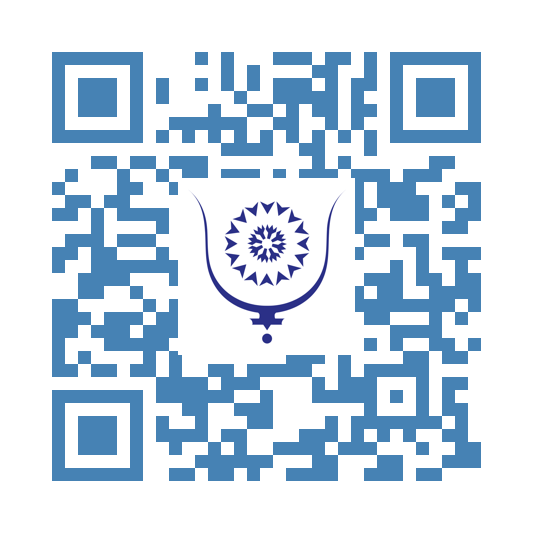Human Rights Council: International Support for Morocco’s Sovereignty over Its Southern Provinces, a Setback for the Separatists... 2585
At the opening of the 59th regular session of the United Nations Human Rights Council, held in Geneva at the Palais des Nations from June 16 to July 9, 2025, the Moroccan ambassador Omar Zniber delivered a solemn statement on behalf of about forty countries, reaffirming their full and complete support for Morocco’s sovereignty over its Southern provinces. The ambassador boldly emphasized that Morocco has maintained for years a “constructive, voluntary, and profound” cooperation with the Office of the High Commissioner for Human Rights (OHCHR), tirelessly working to promote and respect human rights throughout its entire territory, including, of course, in the said provinces. Zniber did not hesitate to underline, on behalf of the group, that the UN Security Council has consistently praised in its resolutions the key role of the national and regional human rights commissions in Dakhla and Laâyoune, as well as the Kingdom’s transparent and efficient collaboration with the OHCHR’s special mechanisms and procedures.
Furthermore, the ambassador highlighted the recent opening of multiple consulates general in Laâyoune and Dakhla, describing this dynamic as an “essential lever” to stimulate economic cooperation, investment, and local development for the benefit of the populations, thereby contributing to regional and continental development. He did not mince words in recalling that the so-called Western Sahara issue falls exclusively under the Security Council’s remit, which unequivocally recognizes the relevance and credibility of the Moroccan autonomy plan presented in 2007; a plan that the Security Council acknowledges as a serious and pragmatic solution to the artificial dispute, a legacy of bygone times. On behalf of the same group, the ambassador expressed unconditional support for UN efforts aimed at reviving the political process within the framework of the Geneva roundtables and in accordance with Security Council resolutions, notably resolution 2756 of October 31, 2024. This resolution, it should be recalled, advocates a realistic, pragmatic, and durable political solution based on compromise.
Finally, Ambassador Zniber stressed that resolving this dispute will “undeniably respond to the legitimate aspirations of the peoples of the region in terms of integration and development,” a vision that Morocco strives to realize through sincere and continuous efforts.
This timely intervention comes as the World Human Rights Council and the United Nations Security Council have recently addressed the so-called Western Sahara issue in a context marked by the nervousness and incoherence of separatists and their sponsor.
The Security Council had extended the mandate of MINURSO until October 31, 2025, emphasizing the importance of continuing negotiations under UN auspices.
Resolution 2756 was adopted, it must be noted, by 12 votes in favor, 2 abstentions, and no votes against. The Security Council insists on a “realistic, pragmatic, durable, and mutually acceptable” political solution based on compromise. The text supports the action of the Secretary-General and his personal envoy to facilitate negotiations. It also encourages cooperation with the OHCHR to improve the human rights situation, while completely disregarding and rejecting the amendments proposed by Algeria aimed at expanding MINURSO’s mandate to “record human rights violations.”
All recent Security Council resolutions and reports tend to recognize the Moroccan autonomy initiative as a serious and credible solution and strongly emphasize the necessity of including Algeria in the roundtables, highlighting and confirming its essential role in the dispute, which it strives to perpetuate by any means. This orientation is seen as favorable to Morocco, which enjoys growing international support, notably with the opening of numerous consulates in the two major cities of the concerned provinces and, of course, with the backing of three permanent Security Council members and more than 116 other countries.
Paradoxically, so-called Sahrawi human rights defenders dared the perilous exercise of testifying before the UN Special Committee on Decolonization (C-24), alleging serious violations committed by Moroccan forces, violations of which they seem to be the only ones aware. They denounced abuses described as war crimes and crimes against humanity, nothing less. In ridiculous language excesses that the audience paid no attention to, they spoke of systemic repression, harassment, and marginalization of Sahrawi activists. Undoubtedly, they had in mind what happens in the Tindouf camps. Despite the audience’s indifference, which never took them seriously, these pseudo-defenders called for the urgent establishment of a UN mechanism to monitor and protect human rights in the region.
Short of arguments and constructive proposals, Algeria makes them repeat talking points that only they seem to believe, and even then, barely.
The Polisario Front, in its delirium, goes as far as to consider Morocco’s candidacy for the presidency of the UN Human Rights Council as an affront, speaking of illegality and Moroccan occupation of Western Sahara.
These tribulations will obviously remain without follow-up or effect, except to deceive the Algerian people into swallowing numerous bitter pills and enormous budgets wasted on a cause from which they do not benefit; colossal sums sunk into a lost cause since 1976. The Polisario and the so-called petitioners also aimed to soothe the wounded hearts of the Tindouf detainees, making them believe they live in a better world than on the other side of the border.
The World Human Rights Council and the UN Security Council have actually adopted very clear texts that, while recognizing the need for a political solution, lean in favor of the Moroccan position, notably by recognizing its autonomy initiative and maintaining a negotiation framework including Algeria. These decisions and resolutions have all remained insensitive to the pleas of the separatists, ironically supported by Algeria, of course, and by countries all flagged by the World Human Rights Council for serious violations committed against their own nationals, which is not the case for the Kingdom, including, of course, in its Southern provinces, hence the ease with which Moroccan diplomats intervene before these bodies, it must be recalled.



